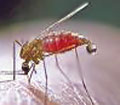
And now there is some good news for the fighting against the Malaria as a new study has suggested that genetically engineered malaria parasites - stunted through precise gene deletions - could be used as a vaccine that protects against malaria infection.
The study clearly hints that this means that the harmless (attenuated) version of the parasite would interact with the body in the same way as the infective version, but without possibility of causing disease. Genetically attenuated parasites) GAP-vaccination would induce robust immune responses that protect against future infection with malaria.
A team of scientists announced the results of a trial with a new kind of malaria vaccine, a whole-parasite preparation weakened by radiation. The trial showed promising results, but the method of vaccination was not optimal, requiring intravenous administration and multiple high doses.
Stefan Kappe, Ph.D., lead author of the paper and professor at Seattle BioMed, said that in this paper they have showed that genetically engineered parasites are a promising, viable option for developing a malaria vaccine, and that they are currently engineering the next generation of attenuated parasite strains with the aim to enter clinical studies soon.
It is noted that for the first time, researchers created a weakened version of the human malaria parasite by altering its DNA. They tested the safety of the new modified parasite by injecting six human volunteers through mosquito bites.
Five of the six volunteers showed no infection with the parasite, suggesting that the new genetic technique has potential as the basis for a malaria vaccine.
(With inputs from ANI)
|
|


Comments: